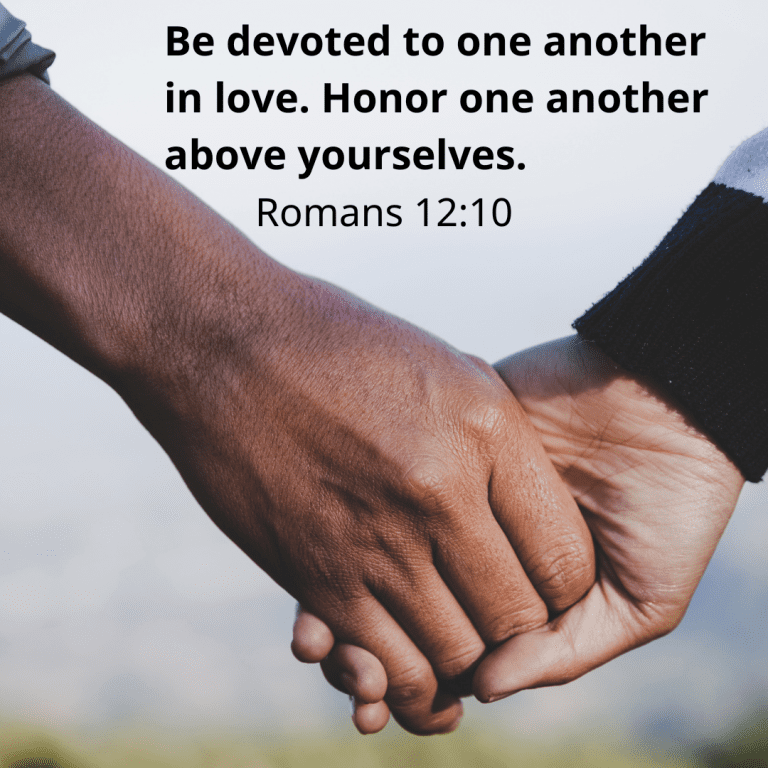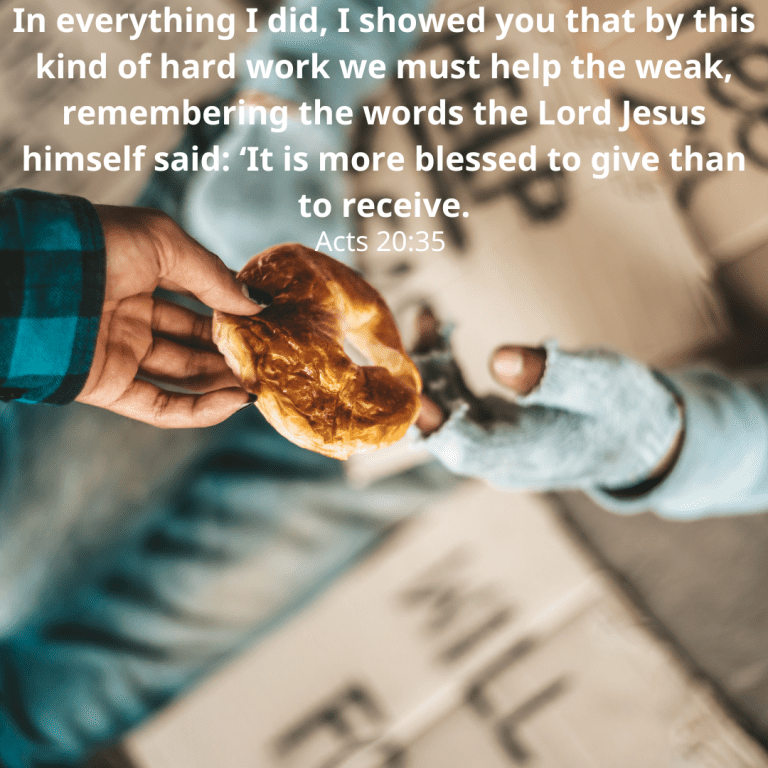The Parable of the Sower
(Mark 4.1-9Luke 8.4-8)1 That same day Jesus left the house and went to the lakeside, where he sat down to teach. 2 The crowd that gathered around him was so large that he got into a boat and sat in it, while the crowd stood on the shore. 3 He used parables to tell them many things.
“Once there was a man who went out to sow grain. 4 As he scattered the seed in the field, some of it fell along the path, and the birds came and ate it up. 5 Some of it fell on rocky ground, where there was little soil. The seeds soon sprouted, because the soil wasn't deep. 6 But when the sun came up, it burned the young plants; and because the roots had not grown deep enough, the plants soon dried up. 7 Some of the seed fell among thorn bushes, which grew up and choked the plants. 8 But some seeds fell in good soil, and the plants bore grain: some had one hundred grains, others sixty, and others thirty.”
9 And Jesus concluded, “Listen, then, if you have ears!”
The Purpose of the Parables
(Mark 4.10-12Luke 8.9Luke 10)10 Then the disciples came to Jesus and asked him, “Why do you use parables when you talk to the people?”
11 Jesus answered, “The knowledge about the secrets of the Kingdom of heaven has been given to you, but not to them. 12 For the person who has something will be given more, so that he will have more than enough; but the person who has nothing will have taken away from him even the little he has. 13 The reason I use parables in talking to them is that they look, but do not see, and they listen, but do not hear or understand. 14 So the prophecy of Isaiah applies to them:
‘This people will listen and listen, but not understand;
they will look and look, but not see,
15 because their minds are dull,
and they have stopped up their ears
and have closed their eyes.
Otherwise, their eyes would see,
their ears would hear,
their minds would understand,
and they would turn to me, says God,
and I would heal them.’
16 “As for you, how fortunate you are! Your eyes see and your ears hear. 17 I assure you that many prophets and many of God's people wanted very much to see what you see, but they could not, and to hear what you hear, but they did not.
Jesus Explains the Parable of the Sower
(Mark 4.13-20Luke 8.11-15)18 “Listen, then, and learn what the parable of the sower means. 19 Those who hear the message about the Kingdom but do not understand it are like the seeds that fell along the path. The Evil One comes and snatches away what was sown in them. 20 The seeds that fell on rocky ground stand for those who receive the message gladly as soon as they hear it. 21 But it does not sink deep into them, and they don't last long. So when trouble or persecution comes because of the message, they give up at once. 22 The seeds that fell among thorn bushes stand for those who hear the message; but the worries about this life and the love for riches choke the message, and they don't bear fruit. 23 And the seeds sown in the good soil stand for those who hear the message and understand it: they bear fruit, some as much as one hundred, others sixty, and others thirty.”
The Parable of the Weeds
24 Jesus told them another parable: “The Kingdom of heaven is like this. A man sowed good seed in his field. 25 One night, when everyone was asleep, an enemy came and sowed weeds among the wheat and went away. 26 When the plants grew and the heads of grain began to form, then the weeds showed up. 27 The man's servants came to him and said, ‘Sir, it was good seed you sowed in your field; where did the weeds come from?’ 28 ‘It was some enemy who did this,’ he answered. ‘Do you want us to go and pull up the weeds?’ they asked him. 29 ‘No,’ he answered, ‘because as you gather the weeds you might pull up some of the wheat along with them. 30 Let the wheat and the weeds both grow together until harvest. Then I will tell the harvest workers to pull up the weeds first, tie them in bundles and burn them, and then to gather in the wheat and put it in my barn.’”
The Parable of the Mustard Seed
(Mark 4.30-32Luke 13.18Luke 19)31 Jesus told them another parable: “The Kingdom of heaven is like this. A man takes a mustard seed and sows it in his field. 32 It is the smallest of all seeds, but when it grows up, it is the biggest of all plants. It becomes a tree, so that birds come and make their nests in its branches.”
The Parable of the Yeast
(Luke 13.20Luke 21)33 Jesus told them still another parable: “The Kingdom of heaven is like this. A woman takes some yeast and mixes it with a bushel of flour until the whole batch of dough rises.”
Jesus' Use of Parables
(Mark 4.33Mark 34)34 Jesus used parables to tell all these things to the crowds; he would not say a thing to them without using a parable. 35 He did this to make come true what the prophet had said,
“I will use parables when I speak to them;
I will tell them things unknown since the creation of the world.”
Jesus Explains the Parable of the Weeds
36 When Jesus had left the crowd and gone indoors, his disciples came to him and said, “Tell us what the parable about the weeds in the field means.”
37 Jesus answered, “The man who sowed the good seed is the Son of Man; 38 the field is the world; the good seed is the people who belong to the Kingdom; the weeds are the people who belong to the Evil One; 39 and the enemy who sowed the weeds is the Devil. The harvest is the end of the age, and the harvest workers are angels. 40 Just as the weeds are gathered up and burned in the fire, so the same thing will happen at the end of the age: 41 the Son of Man will send out his angels to gather up out of his Kingdom all those who cause people to sin and all others who do evil things, 42 and they will throw them into the fiery furnace, where they will cry and gnash their teeth. 43 Then God's people will shine like the sun in their Father's Kingdom. Listen, then, if you have ears!
The Parable of the Hidden Treasure
44 “The Kingdom of heaven is like this. A man happens to find a treasure hidden in a field. He covers it up again, and is so happy that he goes and sells everything he has, and then goes back and buys that field.
The Parable of the Pearl
45 “Also, the Kingdom of heaven is like this. A man is looking for fine pearls, 46 and when he finds one that is unusually fine, he goes and sells everything he has, and buys that pearl.
The Parable of the Net
47 “Also, the Kingdom of heaven is like this. Some fishermen throw their net out in the lake and catch all kinds of fish. 48 When the net is full, they pull it to shore and sit down to divide the fish: the good ones go into the buckets, the worthless ones are thrown away. 49 It will be like this at the end of the age: the angels will go out and gather up the evil people from among the good 50 and will throw them into the fiery furnace, where they will cry and gnash their teeth.
New Truths and Old
51 “Do you understand these things?” Jesus asked them.
“Yes,” they answered.
52 So he replied, “This means, then, that every teacher of the Law who becomes a disciple in the Kingdom of heaven is like a homeowner who takes new and old things out of his storage room.”
Jesus Is Rejected at Nazareth
(Mark 6.1-6Luke 4.16-30)53 When Jesus finished telling these parables, he left that place 54 and went back to his hometown. He taught in the synagogue, and those who heard him were amazed. “Where did he get such wisdom?” they asked. “And what about his miracles? 55 Isn't he the carpenter's son? Isn't Mary his mother, and aren't James, Joseph, Simon, and Judas his brothers? 56 Aren't all his sisters living here? Where did he get all this?” 57 And so they rejected him.
Jesus said to them, “A prophet is respected everywhere except in his hometown and by his own family.” 58 Because they did not have faith, he did not perform many miracles there.
Odaije gwa kwiji gwina gwathauni
1 Gi lamun ibile a Yasuuⓐ gathani duna, ŋwela ŋwujalo kimumu ga baẖr. 2 A liji loinyadho ila dugun, ŋwuni gi felluuka ganu, abi liji dhunu kimumu. 3 Ŋwulodaijo, ŋwulaici, Kwiji gweta gwiludhi dauni; 4 a dina muŋw auni, a ŋwulaŋ coŋ ide gi dhai alaŋ, a nyira ila, aleny. 5 A ŋwiter ide ŋworlolo ganu ŋwina ŋwati ŋwuthi kwiyaŋu gwoinyadho no; anitudhadha ganu, ŋinena athi kwiyaŋ jo gwoinyadho no. 6 A ma aŋin alidha, alude; ŋinena athil uthi duwa doinyadho no, aludhe. 7 A coŋ ide gi cugi ganu; a cugi biŋa, aleny. 8 A coŋ ide ŋiro ganu ŋina ŋiŋir, aliŋa keleŋa; a coŋ uthi je dure‐thudhina, a coŋ dure‐thiril, a coŋ dhure‐a‐die. 9 Gwina gwuthi nyuni nya dhidiŋini, abricul ŋwudiŋini.
Dhuŋun dha odaije dhiraŋ?
10 A calmiz ila dugun, alothaije galo, alaici, Kworaŋ ŋababiŋaijo lijo dhuŋuna ibidha odaije gwai? 11 Ŋwulbabiŋaijo, ŋwulaici, Nyaŋa luthi ŋoma laliŋa dhuŋuna dhina dhigilibo dha gidhila ga Sama, athil biliŋidhi no. 12 Kwiji gweda gwina gwuthi ŋida ŋaji ŋalbadhaijo manaŋ, a ŋaji ŋuŋwululthuni; abi gwina gwati gwuthi ŋida no ŋaji ŋalapa ŋina ŋuthuŋwulo. 13 Gi dhuŋun ibidha ŋajibi abiŋaijo odaije gwai, diluthi ŋoma alaŋa je jai jegen, athilbi aŋadhi no; aldiŋini, athilbidiŋinu no, i athil liŋidhi no. 14 A dhuŋun dhina dhabiŋu nebi Ishaⓐya uthi je ganu degen dhina dhabiŋudhuŋw degen gwai, dhina dharnu, Didiŋini nyaŋa laji ladiŋini, abi dhati dhanyaliŋa no; a daŋa nyaŋa laji laŋa, a dhati dhanyaliŋa no. 15 Ŋinena bur dugor da liji ibila, a nyuni nyegen rimi ganu didiŋini, a je jegen luthini; i udubidi ŋediŋa luthi ŋoma ladaŋa galo je jai jegen, a luthi ŋoma ladiŋini nyuni nyai nyegen, a luthi ŋoma alliŋa dugor dai degen, alurle dugore galo degen, a linyil iŋiriye nono. 16 Abi je jalo jiŋir, ŋinena aŋudhilo momaŋ; a nyuni nyalo, ŋinena diŋinilo. 17 Titiganu nyi gwa gwacaijinu, Nebiŋa a liji lina liŋir loinyadho lathibupe dilari laŋa ŋida ŋina ŋathanyalaŋa, abi lati luthi ŋoma ŋalaŋa no. Alari ladiŋini dhuŋuna dhina dhathanya diŋini, abi dhati dhuthi ŋoma dhaldiŋini no.
Maⓐna gwa odaije gwa kwiji gwina gwathauni
18 Diŋinul odaijuŋw gwa kwiji gwina gwaunu. 19 Mathi kwiji gweta diŋini dhuŋuna dha gidhila ga Sama, athuŋw biliŋidhi no, a Sheṯaan ila, ŋwugre dhuŋuna dhina dhikwuinu gi dhugor ganu dugun. Gwiro ŋeda gwina gwikwuinu gi dhai kuni. 20 A ŋwina ŋwide ŋworlolo ganu, gwiro gwina gwathidiŋini dhuŋuna dha Kalo, ŋwunmuthadha ganu babraŋ, ŋwiŋir dhugore; 21 athuŋwbuthi duwa no, athuŋwbi je gwitiny manaŋ; abi mal dhuŋun dhina dhike ilijo; i man liji dhagirini gi dhuŋun dhina dhuthilo dha Kalo, an idudhadha ganu. 22 A ŋwina ŋwide gi cugi ganu gwiro gwina gwathidiŋini dhuŋuna dha Kalo; athibi ŋidi ŋa gidhila ibiga mirejuni dhugore a ŋidi ŋoinyadho mirejo galo, aleny dhuŋuna dha Kalo, athuŋw riro no. 23 Abi gwina gwido ŋiro ganu ŋina ŋiŋir, gwiro kwiji gwina gwathidiŋini dhuŋuna dha Kalo, ŋwuliŋa momaŋ; a gwarire ko fruuta momaŋ; ŋwuthi je dure‐thudhina, a coŋ dure‐thiril, a coŋ dhure‐a‐die.
Odaije gwa domel gwina gwikwuinu gi dhiruiny ganu
24 Ŋwulodaijo odaijuŋw gwiter, ŋwulaici, Gidhila ga Sama giro ŋinena kwiji gwina gwikwui ŋwulaŋa ŋwina ŋwiŋir gi dhiruiny ganu dugun. 25 Abi dina ma liji peth dhire, a kwiji gweta ila gwina gwikiil gwai, ŋwukuijo domela gi dhiruiny ganu dhuŋun, ŋwabire. 26 A ma ŋwon tuya, aliŋa keleŋa, abi domel tuya ko, ŋwuliŋini ŋwon ganu. 27 A jadham ja kweleny ibigwe ila dugun, alabiŋaijo, alaici, Kweleny gwai, ŋa gwati gwikwui ŋwulaŋa ŋwina ŋwiŋir gi dhiruiny ganu dhuŋa na? Abi domel gwidhi na? 28 Ŋwulabiŋaijo, ŋwulaici, Kwiji gwina gwikiana gwai gwimapai dhuŋuna ibidha. A jadham abiŋaijo, alaici, ŋa gwara anaŋa lela ana kura galo a? 29 Ŋwulbaici, Oo; ada nyaŋa limakura domela galo, nya lakura ŋwona galo ko. 30 Abricilo albiŋa liduŋw di maji maluni ŋwona; abi gi lamun ibile nyi gwabiŋaijo lijo lina lathapai ŋiro, linyilaici, Waladhul domela galo kwereny, nyageta liduŋw, daji dudunini; nyabuni ŋwona ŋwiny, nyalbuluje ŋiluŋw ŋiny. 31 Ŋwulari ŋwulodaijo odaijuŋw gwiter, ŋwulaici, Gidhila ga Sama giro ŋinena luginy la mastarda lina lapo kwiji, ŋwukwoi gi dhiruiny ganu. 32 Litinyanu ŋwuginy peth; abi malkwoi, muŋw tuya, ŋwubuthani a ŋwolanalaŋ jari peth jina jitijitiny, ŋwuro kwari gwina gwipa, athin nyira nya kabo auradhe nyoinyadho aldhre gi durna duŋun. 33 Ŋwari ŋwulodaijo manaŋ, ŋwulaici, Gidhila ga Sama giro ŋinena jila jina jiro ŋijini jina japilo kwa, ŋwulgilibice gi jila ganu jina jiro ŋwenya thiril, di malro ŋijini peth. 34 Dhuŋun ibidhe peth dhabiŋaijo Yasuuⓐ lijo odaije gwai; lati lathuŋwul abiŋaijo dhuŋuna dogo no, athuŋwulbi odaije. 35 A dhuŋun uthi je ganu dhina dhabiŋu nebiŋa dhina dharnu, Nyi gwaji gwigiye ŋwinyu ŋwiny, nyaji nyodaije. Nyi gwaji gwaŋiye dhuŋuna dhina dhigilibo ro kwereny gi dhugul dha gidhila.
Maⓐna gwa odaije gwa domel
36 A Yasuuⓐ dhiŋa lijo, ŋwuni kiru; a calmiz juŋun ela dugun, alabiŋaijo, alaici, Aŋajije odaijuŋw gwa domel gwina gwikwuinu gi dhiruiny ganu. 37 Ŋwulabiŋaijo, ŋwulaici, Kwiji gwina gwikwui ŋwona ŋwina ŋwiŋir gi dhiruiny ganu Ŋari ŋa liji ŋiro; 38 a dhiruiny dhiro gidhila; a ŋwon ŋwina ŋwiŋir ŋwiro keleŋa ga gidhila ga Sama; a domel gwiro keleŋa ga Sheṯaan; 39 a kwiji gwina gwikiil gwai gwina gwikwuilo gwiro Sheṯaan; a lamun la dhuni liro ŋinena lamun la gidhila lina laji lamira; a lina laji luni malaayka liro. 40 A gwiro ŋinena an domel gwina gwike dunini iga yai; dhuŋun dhaji dhanro minoŋ ko gi lamun lina laji lamira. 41 Ŋari ŋa liji ŋaji ŋukeja malaayka luŋun, a la uthe ŋida ganu peth ŋina ŋike kidhila ganu guŋun, a ko peth lina lathapai ŋida ŋina ŋike. 42 A laji laligatho kiga; a laji lanare, alinyini gi jiŋai. 43 Abi lina liŋir laji lora galo gwiro ŋinena aŋin kidhila ga Babo gwegen. Gwina gwuthi nyuni nya dhidiŋini, abricul ŋwudiŋini.
Odaije gwa lulua, a ŋidi ŋina ŋiŋir ŋina ŋigilibicinu gi dhiruiny ganu, a diba
44 Gidhila ga Sama giro ŋinena ŋidi ŋina ŋiŋir ŋina ŋigilibicinu gi dhiruiny ganu; ŋina ŋibujilo kwiji gweta, ŋwulgilibice, gwiŋir dhugore gwuleny, ŋwela, ŋwelia ŋida ŋuŋun peth, ŋwelaŋ dhiruiny ibidhe. 45 Manaŋ gidhila ga Sama giro ŋinena jellaaba jina jathibupe nyideny nyina nyiro lulua lina liŋir gwuleny. 46 A dina muŋw buje ŋideny ŋeta ŋina ŋuthi luro lipa gwuleny, ŋwelia ŋida ŋuŋun peth, ŋwelaŋ ŋidenya ibiŋe. 47 Manaŋ gidhila ga Sama giro ŋinena diba gwina gwiguthinu gi baẖr ganu, ŋwuwareje ŋida liduŋw ŋoinyadho ganu. 48 A dina muŋw oinyadhe, alodha kimumu, aljalo, alotha ŋweny ganu ŋina ŋiŋir, alili gatho ŋina ŋike por. 49 Gwaji gwaro minoŋ gi lamun la gidhila lina laji lamira. Malaayka latuia, algugina lijo ganu lina like gi liji ganu lina liŋir. 50 Alligatho kiga, alare, alinyini gi jiŋai. 51 Al Yasuuⓐ abiŋaijo, ŋwulaici, Nyaŋa limaliŋa dhuŋuna ibidha peth a? Alaicinu, Ye, Kweleny gwai. 52 Ŋwulabiŋaijo, ŋwulaici, Jathib peth jina jaliminu kidhila ga Sama jiro ŋinena kwiji gwina gwiro kweleny gwa dunu gwina gwathapai ŋida ŋa ŋidi ŋuŋun ŋina ŋiŋir, ŋina ŋiyaŋ a ŋina ŋurun.
Liji la Naas̱ira lidoinyo Yasuuⓐuŋw
53 A dina ma Yasuuⓐ meaje odaijuŋw ibigwe peth, ŋwugathani kaloŋa ibige. 54 Ŋwela, ŋwobani gi len luŋun, ŋwulalimiye gi majmaⓐ ganu gwegen, alali galo dir, alarnu, Kwiji ibigwa gwapo ŋadigirenya na, athuŋw bapai ŋiro ibiŋa ŋina ŋinaŋ? 55 Ŋari ŋa najjaar ŋutu na? a nana gwuŋun gwati gwan Maryam na? Yaⓐguubŋa, Yuusufŋa, Simⓐaanŋa, Yahuudhaŋa lati liro limegen na? 56 A limegen lina liro nyera lati lathilije na? Kwiji ibigwa gwapo ŋida ibiŋa peth na? 57 Alkadugore dugun, albi Yasuuⓐ abiŋaijo, ŋwulaici, Nebi gwuthi nuŋw, abi gwati gwuthi nuŋw gi len luŋun, a gi dunu gwuŋun no. 58 Athuŋw apo ŋiro ŋoinyadho ŋina ŋinaŋ mine no, ŋinena athil uminyu no.



